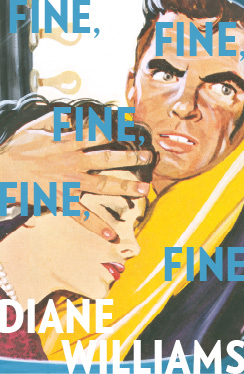There is a common assumption that experimental writing — for want of a better term — is obscure, joyless and arid. Or worse: that it is fake (or ‘pseudy’), a deception practised upon either the deluded or gullible reader. So I wonder what people who hold such assumptions would make of this. It constitutes the final paragraph of ‘Specialist’, one of the stories in this collection. The story itself is, not untypically for this book, less than a page long:
The cyclist hit me, and it’s vile after my life ends in the afterlife. Lots of incense, resin, apes and giraffe-tails — all acquired tastes. I don’t like that kind of thing.
Several things may strike you. First, of course, is the breaking of the narrative convention that holds that no first-person narrator can report back from death. This is certainly not an unbreakable convention, but there is something about the speed and airiness with which this death happens that amounts almost to insolence. And that list of aspects of the afterlife (not to mention the strangely skewed grammar of ‘after my life ends in the afterlife’): what’s that about? We might think of the cargo of Solomon’s ships in Chronicles 9; or of the gifts of the Magi; or even John Masefield’s ‘Cargoes’; but the reference is hazy, as if recalled in a dream.
And then we get ‘all acquired tastes’ and ‘I don’t like that kind of thing’. What kind of thing? Acquired tastes? Or incense, etc? Moreover, in what position is the narrator, that she (I assume she’s a she, but there is no evidence of one gender or another) can express irritation at the way the afterlife has been arranged? What bizarre eschatology is going on here?
I venture to suggest that this is actually very sophisticated comedy. Williams, who has been writing these surreal parables — also, for want of a better term — since 1990, is now one of the most acclaimed writers in America, and I would like to add my voice to that acclaim (it is a remarkable coup, by the way, for this publisher to have snaffled her up).
She is an expert at hinting at an awful lot through the artful arrangement of non-sequiturs — to the point where we question whether they are non-sequiturs. (After all, I would imagine that giraffe-tails are an acquired taste; and that it is perfectly reasonable not to want to acquire a taste for them. And yet…) The joke is based on a very well-tuned ear for language. Williams uses cliché and common turns of phrase with deliberate inappropriateness, so that we can look at the world anew.
To put it another way, it’s why the line ‘we’ve gone on holiday by mistake’ in Withnail and I is only funny to native English speakers. Williams’s technique is similar. From ‘Sigh’: ‘He is a calm man by nature and not liable to break anything really nice by accident.’ The joke of that sentence resides in the way that the qualifiers build up to describe someone around whom we would actually be wise to feel uneasy, and hide fragile objects from.
So do not expect conventional stories here: in a way, each story contains, in essence, several stories; we can build up whole lives from the brief clues Williams gives us. She makes you pay attention to her very commas.






Comments